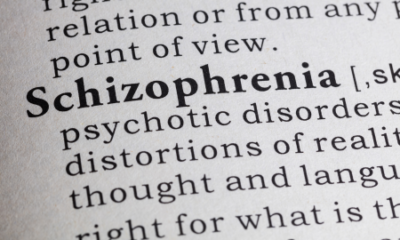News & Research on Psychology | ShareYrHeart
How to Use AI Voice Coaches to Decrease Anxiety and Sadness
Published
12 months agoon
By
ShareyrheartAccording to a research, utilizing AI Voice Lumen led to alterations in patients’ brain activity as well as reduced signs of anxiety and despair.
The findings of a recent airman study conducted by experimenters at the University of Illinois at Chicago suggest that artificial intelligence might be a salutary aid in the treatment of internal illness. The study, which was the first to test an AI Voice speech- grounded virtual trainer for behavioral remedy, discovered that cases’ brain exertion changed after using Lumen, an AI voice adjunct that handed a type of psychotherapy, coupled with dropped symptoms of sadness and anxiety.

The UIC team asserts that the results offer positive evidence that virtual treatment can fill in the gaps in mental health care. The research was released in the publication Translational Psychiatry. Where patients, particularly those from vulnerable areas, regularly encounter barriers to receiving care, such as waitlists and access discrepancies. With rising rates of anxiety and depression and a shortage of practitioners, we have experienced an extraordinary surge in demand, said Dr. Olusola A. Ajilore, a psychiatry professor at the University of Illinois at Chicago and a co-first author of the study. Technology of this kind could serve as a connection. It’s not meant to take the place of traditional therapy, but it can be a temporary fix until someone can get treatment.
Lumen was created by Ajilore and Dr. Jun Ma, the Beth and George Vitoux Professor of Medicine at UIC, in collaboration with scientists from Pennsylvania State University and Washington University in St. Louis. It receives financing from a $2 million grant from the National Institute of Mental Health and operates as a skill in the Amazon Alexa application.
For the clinical investigation, the UIC researchers enrolled over 60 patients to see how the application affected mild-to-moderate depressive and anxiety symptoms as well as brain activity in regions that have been linked to the advantages of problem-solving treatment in the past.
Two thirds of the patients participated in eight sessions of problem-solving therapy using Lumen on an iPad provided by the study, while the remaining third acted as a “waitlist” control group that did not receive any care
Comparing research participants utilising the AI Voice Lumen app to the control group after the intervention, they had lower ratings for psychological distress, anxiety, and depression. A brain region linked to cognitive control, the dorsolateral prefrontal cortex, was more active in the Lumen group, which also shown gains in problem-solving abilities. Women and underrepresented groups also had encouraging outcomes.
It involves altering how individuals see issues and the best approach to solve them, as well as preventing emotional overload, according to Ma. This well-established, pragmatic, and patient-driven behaviour treatment is a suitable fit for delivery via voice-based technologies.
The researcher is presently engaged in a bigger investigation that compares the usage of Lumen with both a waitlist control group and patients undergoing human-coached problem-solving therapy. They underline that the virtual coach need not perform better than a human therapist in order to fill a crucial vacuum in the mental health system.
The best way to approach digital mental health services, according to Ma, is not to see apps as a replacement for people, but rather as a way to bridge the gap between supply and demand by identifying new, secure, and efficient ways to provide care to people who might not otherwise have it.









